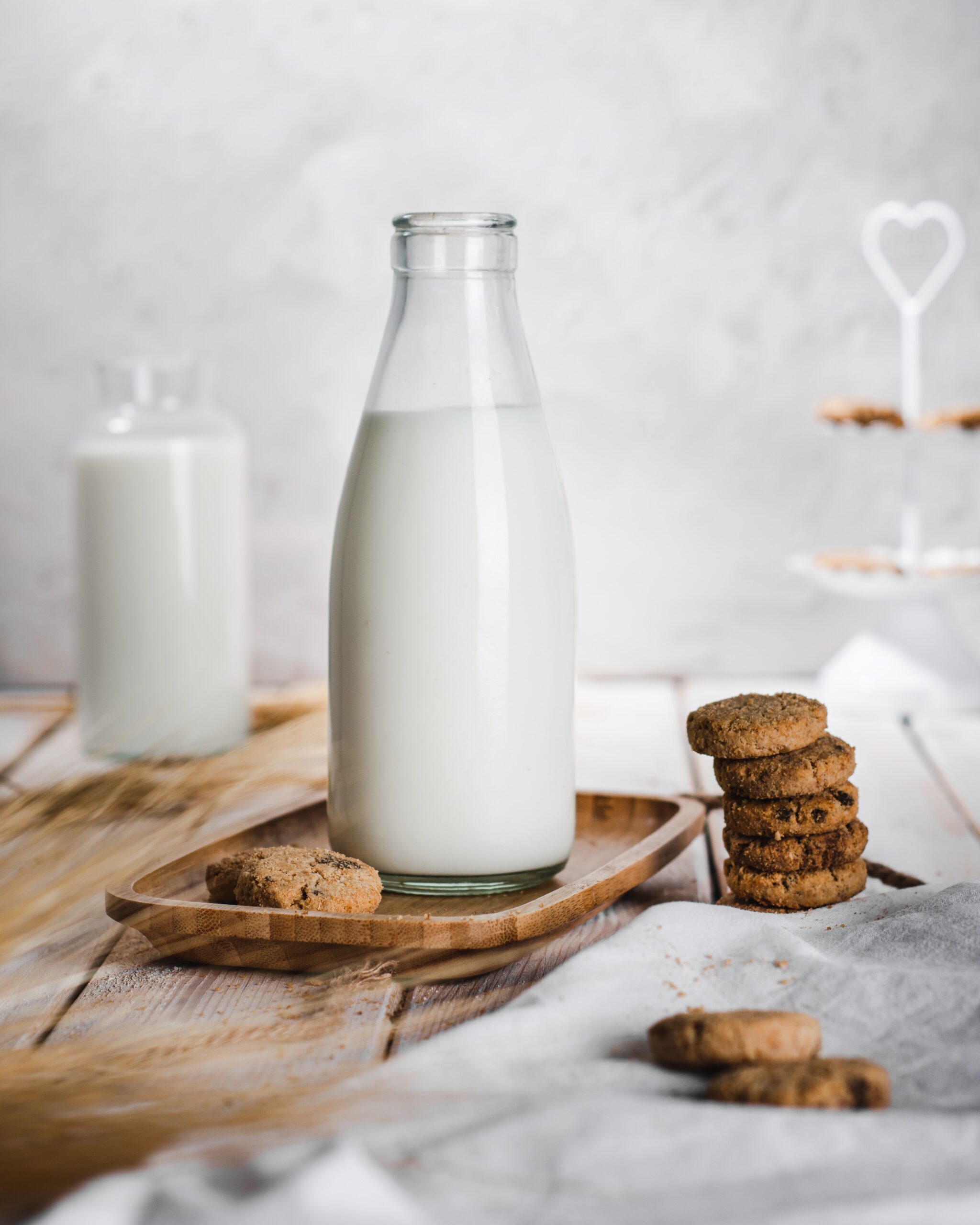Buttermilk is a somewhat uncommon ingredient that is sometimes used in baking to produce cakes and cookies, however, if you are catering for a coeliac you may be wondering whether buttermilk is gluten-free and safe to use.
Buttermilk is completely gluten-free and safe to use in any dishes that need to be gluten-free. The reason for this is that buttermilk as the name suggests is produced from milk and some sort of acidifying agent such as vinegar, lemon juice, or cream of tartar. None of these ingredients contain any gluten and it is, therefore, safe to eat.
Additionally, buttermilk has a reduced level of lactose which can also be beneficial for those people with lactose intolerance.

What Is The Difference Between Milk And Buttermilk?
For those that are unfamiliar with buttermilk, you may be wondering what exactly is the difference between it and regular milk. Buttermilk got its name because it is the leftover material that remains when butter is produced from milk.
This essentially means that the vast majority of fat has been removed from milk to make the butter. As a result of this buttermilk contains a significantly lower calorie count and fat content but is relatively high in things like calcium and vitamin B12 compared to regular milk.
So contrary to its name which suggests that the milk would have a buttery texture it is actually not buttery at all and relatively low in fat. However, buttermilk is often used in baked goods to produce light fluffy, and relatively tangy results in muffins and pancake recipes.
Why Is Buttermilk Used Instead Of Plain Milk In Some Recipes
As mentioned above, buttermilk has a relatively tangy flavor which adds to the character of the recipe being made, however, the other reason it is used in a recipe is that it is relatively acidic which helps to counteract the effect of baking soda, which is basic and on its own relatively bitter.

How Do You Make Homemade Buttermilk?
Making buttermilk at home is relatively straightforward if you don’t have it on hand at your place. It is also relatively convenient because it avoids the need to buy a full bottle of buttermilk that you may not end up using all of it..
To produce buttermilk we need to remove the vast majority of curds from the milk. The simplest way to do this is to add one teaspoon of vinegar or lemon juice to 1 cup of milk. To do this, place the milk in a measuring cup and combine it with the acidifying agent either vinegar or lemon juice and stir the ingredients together thoroughly and then let the mixture rest for 5 to 10 minutes.
The curds can then be separated from the buttermilk using a cloth or a muslin bag to create the amount of buttermilk that you want. The curds can also be used to produce cottage cheese if you don’t want to waste that material.
The buttermilk that you could use at home generally will be a little bit thinner and more watery than the commercial products that you can buy from the store, however, they will produce similar results despite their differences in most recipes.

Can You Substitute Buttermilk For Milk?
It is possible to replace buttermilk with milk in recipes that call for it though the flavor of the dish that is produced will be slightly different because buttermilk has a more acidic taste than milk and is generally considered to have a more sour flavor.
Additionally, the acidic nature of buttermilk can also assist as a rising agent in baking which typically means that the resulting product using buttermilk will be lighter and fluffier in character than dishes produced with milk.
Is Buttermilk Better For You Than Regular Milk?
When comparing the differences between milk and buttermilk from a nutritional perspective you will find that buttermilk is better for you for a couple of reasons. The first is that whole milk typically contains about 50% more calories than buttermilk, additionally, whole milk also has around 4 times the level of fat.
However, in terms of protein and carbohydrate levels, buttermilk and whole milk are similar, Buttermilk is generally a healthier option than whole milk for those people wanting to reduce their calorie and fat intake.
Relevant Articles
Does Gluten Free Flour Take Longer To Bake? What Is The Reason?
Why Does Gluten Free Bread Grow Mold Faster?
Is Gluten Destroyed In A Deep Fryer? Is It Safe For A Coeliac To Eat?

Comments are closed